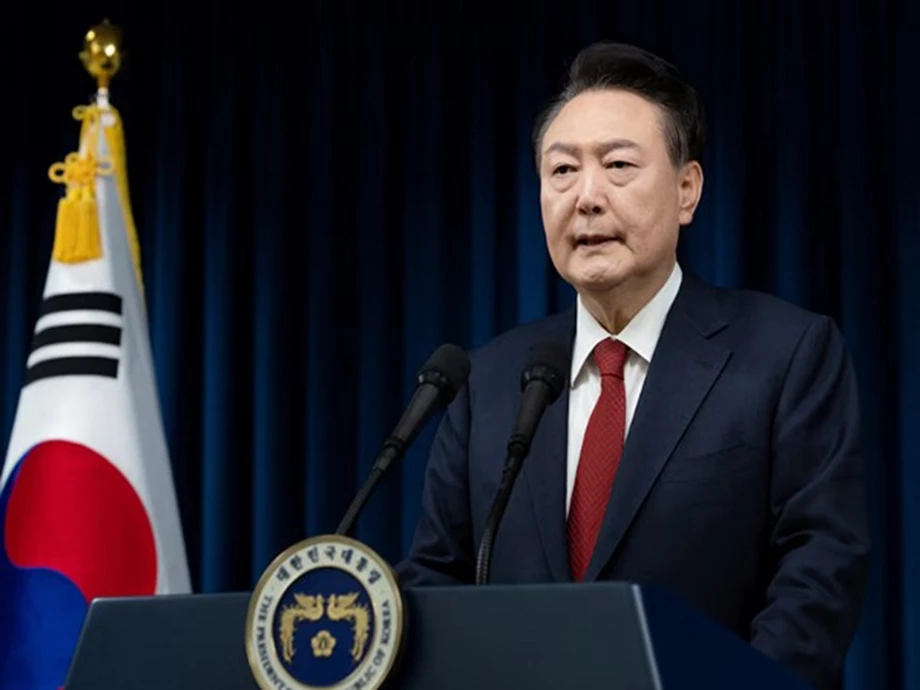In an unprecedented move, South Korean prosecutors have indicted impeached President Yoon Suk-yeol on charges of insurrection following his controversial declaration of martial law. This marks the first time in South Korea’s history that a sitting president has been formally charged while under detention.
The indictment stems from allegations that Yoon, along with former Defense Minister Kim Yong-hyun and other officials, conspired to incite an insurrection. The charges accuse them of declaring an unconstitutional state of emergency on December 3, 2023. The move sent shockwaves across the nation, raising concerns over the stability of the government.
Yoon was taken into custody on January 15, 2024, by the Corruption Investigation Office for High-ranking Officials (CIO), and his formal arrest occurred four days later, on January 19. According to the prosecution, the charges are linked to Yoon’s role in mobilizing military forces to parliament in an attempt to prevent lawmakers from voting against the martial law declaration. Authorities allege that Yoon sought to assert control over the political process using military intervention.
The accusations have added fuel to the already contentious political climate in South Korea. Yoon’s opponents argue that his actions violated democratic principles, while his supporters claim that the martial law declaration was necessary to restore order during a period of intense political turmoil. The decision to indict Yoon came after the prosecution gathered substantial evidence, with concerns that the president might destroy crucial materials related to the case.
In addition to the charges related to the insurrection, prosecutors also pointed to previous allegations of abuse of power that were dropped due to legal protections afforded to sitting presidents. However, the insurrection charge is a more serious matter, carrying severe penalties, including life imprisonment or even the death penalty. While the death penalty has not been carried out in South Korea for decades, the severity of the charges is a testament to the gravity of the situation.
This case has put South Korea’s legal and political systems to the test, raising questions about accountability at the highest levels of government. As the legal proceedings unfold, the country watches closely, aware that the outcome could set a significant precedent for the future of its democracy.
According to Korean news agency Yonhap, the unfolding legal proceedings continue to capture attention both domestically and internationally.
If you need any further adjustments, just let me know!
In an unprecedented move, South Korean prosecutors have indicted impeached President Yoon Suk-yeol on charges of insurrection following his controversial declaration of martial law. This marks the first time in South Korea’s history that a sitting president has been formally charged while under detention.
The indictment stems from allegations that Yoon, along with former Defense Minister Kim Yong-hyun and other officials, conspired to incite an insurrection. The charges accuse them of declaring an unconstitutional state of emergency on December 3, 2023. The move sent shockwaves across the nation, raising concerns over the stability of the government.
Yoon was taken into custody on January 15, 2024, by the Corruption Investigation Office for High-ranking Officials (CIO), and his formal arrest occurred four days later, on January 19. According to the prosecution, the charges are linked to Yoon’s role in mobilizing military forces to parliament in an attempt to prevent lawmakers from voting against the martial law declaration. Authorities allege that Yoon sought to assert control over the political process using military intervention.
The accusations have added fuel to the already contentious political climate in South Korea. Yoon’s opponents argue that his actions violated democratic principles, while his supporters claim that the martial law declaration was necessary to restore order during a period of intense political turmoil. The decision to indict Yoon came after the prosecution gathered substantial evidence, with concerns that the president might destroy crucial materials related to the case.
In addition to the charges related to the insurrection, prosecutors also pointed to previous allegations of abuse of power that were dropped due to legal protections afforded to sitting presidents. However, the insurrection charge is a more serious matter, carrying severe penalties, including life imprisonment or even the death penalty. While the death penalty has not been carried out in South Korea for decades, the severity of the charges is a testament to the gravity of the situation.
This case has put South Korea’s legal and political systems to the test, raising questions about accountability at the highest levels of government. As the legal proceedings unfold, the country watches closely, aware that the outcome could set a significant precedent for the future of its democracy.
According to Korean news agency Yonhap, the unfolding legal proceedings continue to capture attention both domestically and internationally.
(With inputs from news agencies)
A global media for the latest news, entertainment, music fashion, and more.





